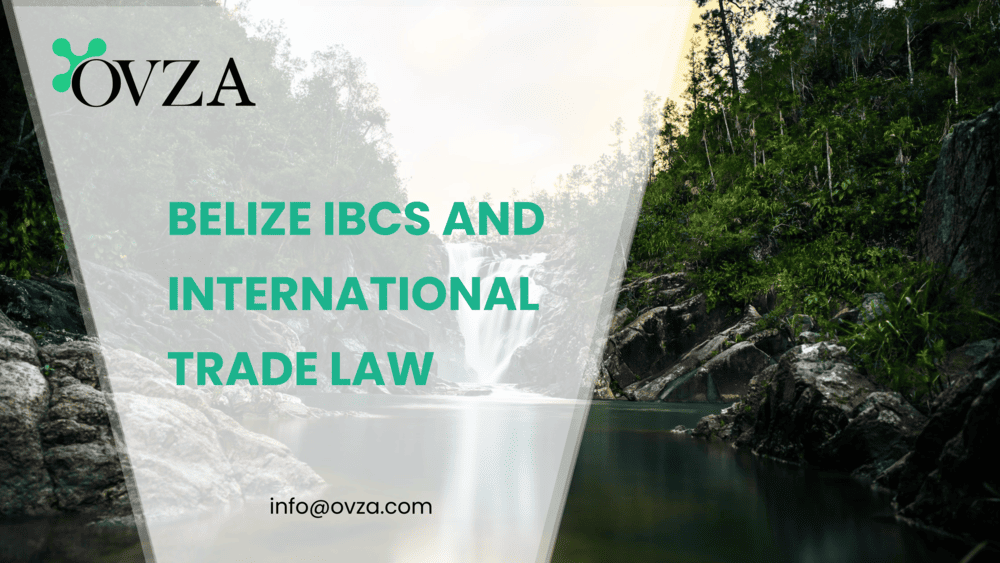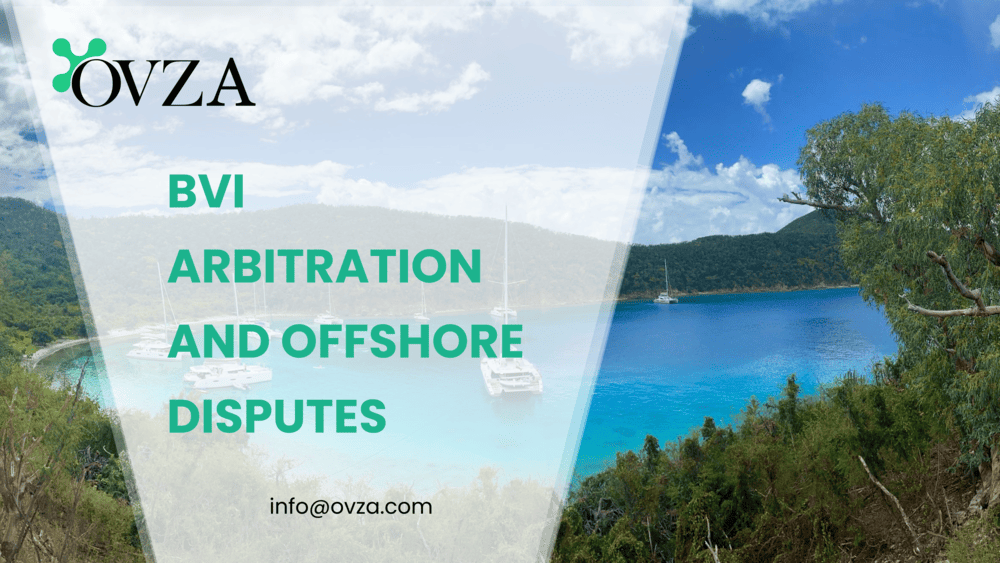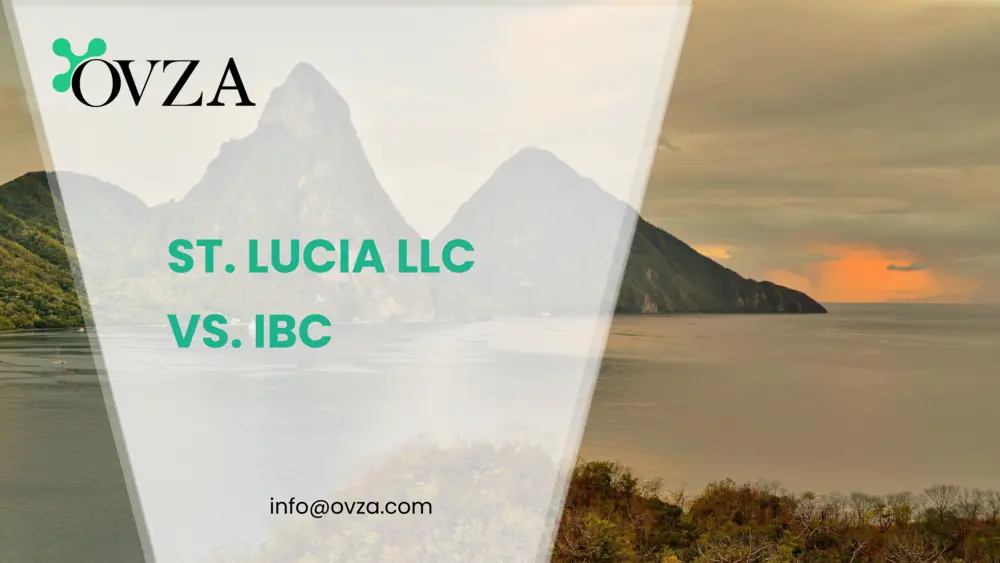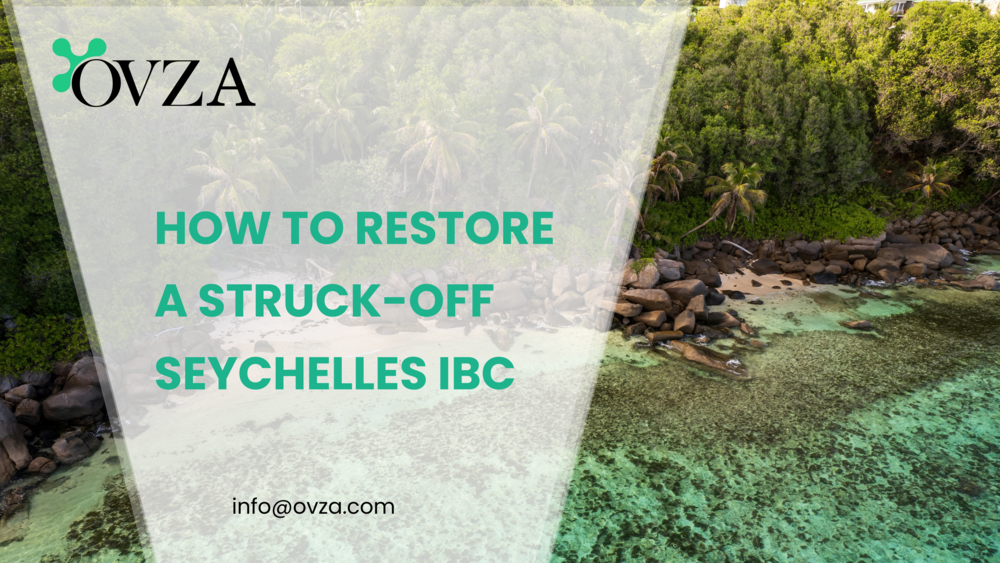What is global minimum tax and how it impacts offshore structures are now central questions in the future of international tax reform. The OECD’s 15% minimum tax aims to close long-standing gaps exploited through offshore companies. While this reform mainly targets multinationals with €750 million+ in revenue, the broader offshore ecosystem is already feeling the pressure to adapt.
- What is the Global Minimum Tax
- How Offshore Structures Must Adapt
- Evolving Roles of Traditional Offshore Jurisdictions
- Strategic Shifts in Offshore Structuring Post-Global Minimum Tax
- Offshore IP Holding Structures Under Scrutiny
- The Future of Offshore Tax Strategy in a Global Minimum Tax World
- Impact on SMEs and Solo Entrepreneurs
- Conclusion
What is the Global Minimum Tax
The global minimum tax, introduced through the OECD’s Pillar Two initiative, is designed to impose a 15% minimum effective corporate tax rate on multinational enterprises with consolidated revenues above €750 million. While smaller businesses may not fall directly under the scope of the rules, the global enforcement environment around offshore structures is shifting. Banks, regulators, and even mid-sized corporate service providers are aligning with the same standards, demanding transparency and substance.
This change strikes at the heart of why many companies used offshore structures in the first place. Historically, the main appeal was simple: set up a company in a zero-tax jurisdiction, hold profits offshore, and defer or avoid taxes in the country of ultimate ownership. But now, if a parent company is located in a jurisdiction that applies global minimum tax rules, profits in a zero-tax jurisdiction will be taxed up to 15% anyway—nullifying the advantage of traditional offshore strategies.
How Offshore Structures Must Adapt
Offshore structures are not dead—but they must evolve. The modern offshore strategy revolves around economic substance, governance, and legal defensibility. Rather than relying on shell companies with no physical operations, businesses are increasingly required to demonstrate that their offshore entities have actual economic activity. This includes having local employees, physical offices, and revenue-generating activities conducted within the jurisdiction.
Some jurisdictions, like the UAE, Barbados, and Mauritius, are adapting quickly. These countries offer competitive tax rates above the 15% floor but still below what companies might pay in the U.S. or EU. More importantly, they have legal infrastructure to support international operations and are not viewed as “blacklisted” jurisdictions. These hybrid setups are becoming the new gold standard for offshore planning under global minimum tax enforcement.
Evolving Roles of Traditional Offshore Jurisdictions
Jurisdictions like the British Virgin Islands, Seychelles, and the Cayman Islands are no longer defined by secrecy or regulatory leniency. Instead of moving from “shadiness” to full transparency, these jurisdictions are transitioning toward a more balanced model—where privacy remains protected, but compliance is now a prerequisite.
The introduction of economic substance laws has shifted the way companies must operate. Offshore entities in these jurisdictions are expected to demonstrate real activity—whether through having local directors, conducting board meetings within the jurisdiction, or incurring operational expenses locally. These measures are not designed to expose ownership unnecessarily, but rather to ensure that structures have a defensible economic presence.
This evolution also reflects in banking and professional services. Institutions increasingly require more than incorporation certificates—they seek audited financials, office lease agreements, or proof of actual decision-making within the jurisdiction. The goal is not to eliminate privacy, but to remove the ambiguity that once allowed entities to operate in a regulatory vacuum.
Offshore companies can still benefit from the privacy and neutrality these jurisdictions offer, especially for intellectual property holding, cross-border licensing, or estate planning—but only if they meet substance standards that align with global norms. The message is clear: offshore privacy is not dead, but it must now be underpinned by credibility and lawful operation.
Strategic Shifts in Offshore Structuring Post-Global Minimum Tax
As the global minimum tax becomes the new standard, offshore structuring is no longer just about choosing the jurisdiction with the lowest corporate rate. Strategic planning now involves aligning legal, operational, and tax elements to create a defensible and efficient structure that meets the expectations of both regulators and financial partners.
For multinational companies still eligible to operate through offshore entities, the focus has turned to jurisdictions offering moderate tax rates coupled with robust legal frameworks. Countries such as Barbados, Cyprus, and the United Arab Emirates have emerged as attractive alternatives—not because they promise anonymity or zero-tax setups, but because they offer a stable, compliant environment where real business activity can occur under a competitive tax rate.
In these jurisdictions, companies can build presence, employ staff, and conduct legitimate operations while remaining compliant with global rules. This gives companies flexibility and privacy without triggering base erosion accusations or reputational backlash. Structures that combine holding companies in the UAE with operational subsidiaries in emerging markets, for instance, are becoming more common for those seeking tax neutrality and legal clarity.
Offshore IP Holding Structures Under Scrutiny
One of the major casualties of the global minimum tax initiative is the traditional offshore intellectual property (IP) holding model. For decades, companies transferred trademarks, patents, and software rights into zero-tax jurisdictions to collect licensing fees without incurring domestic tax. Today, this model raises serious compliance issues if the IP company lacks substance or a genuine role in managing the assets.
Under the new tax regime, if the IP holding company is deemed a shell—without R&D staff, legal oversight, or decision-making authority in the jurisdiction—its income may be subject to top-up taxation at the group level. Additionally, transfer pricing rules are being applied more aggressively, making it harder to justify income booked in passive offshore entities.
Nonetheless, offshore IP structures are not obsolete. They are evolving. Now, to justify such a setup, companies must demonstrate that IP is being actively managed from the jurisdiction—through local licensing teams, brand management operations, or content development activities. Jurisdictions like Ireland and Switzerland have adapted well to these changes, offering both substance and tax efficiency.
The Future of Offshore Tax Strategy in a Global Minimum Tax World
As the dust settles on OECD-driven tax reform, the offshore industry is entering a new chapter—one defined by legitimacy over loopholes. In the past, offshore success was often tied to opacity, complex nominee arrangements, and low-tax arbitrage. Going forward, success will depend on structuring that can stand up to scrutiny by regulators, banking partners, and global compliance standards.
This doesn’t mean offshore is no longer useful—far from it. But the tools have changed. The most competitive offshore structures will be those that pair moderate tax optimization with full transparency, real commercial activity, and legal substance. For example, a BVI holding company may still be appropriate if it owns a real estate portfolio, has board-level oversight in the BVI, and meets economic substance thresholds.
Moreover, as reputational risk becomes a larger concern for both companies and their clients, even legitimate structures need careful planning. Businesses that present clearly documented operations and international legal compliance will continue to access offshore banking, merchant services, and licensing support—while others may be excluded from the global financial system entirely.
Impact on SMEs and Solo Entrepreneurs
Though most global minimum tax rules technically apply only to multinational enterprises with consolidated revenues above €750 million, small and medium-sized enterprises (SMEs) are also being caught in the net. Payment processors, banks, and digital service providers are implementing their own compliance standards that reflect global expectations.
For solo entrepreneurs running remote businesses, owning digital assets, or offering international consulting services, the days of simple offshore incorporation with no follow-up are over. A Seychelles or Belize IBC can still work—but only if paired with strong KYC documentation, accurate invoicing, and access to a banking partner that accepts offshore clients with proper screening and legal documentation.
OVZA helps clients navigate this space by offering jurisdiction-specific advice, compliant structuring, and pre-vetted banking solutions. Our approach is based on the new reality: offshore isn’t about evasion—it’s about flexibility, security, and smart global strategy.
Conclusion
The introduction of the global minimum tax has permanently altered the offshore landscape. What was once a system built on secrecy and arbitrage is now moving toward transparency, substance, and strategic alignment. Offshore companies still offer real advantages—such as cross-border neutrality, legal asset protection, and tax efficiency—but only when built on solid legal foundations and compliant operations.
For businesses of all sizes, this means reevaluating existing structures, embracing jurisdictions with strong regulatory frameworks, and prioritizing substance over shortcuts. The future of offshore is not about escaping tax—it’s about building globally minded, operationally sound entities that meet today’s international standards.
With proper guidance, offshore structuring remains a powerful tool. The key is knowing how to use it responsibly.
Disclaimer: The information provided on this website is intended for general reference and educational purposes only. While OVZA makes every effort to ensure accuracy and timeliness, the content should not be considered legal, financial, or tax advice.








